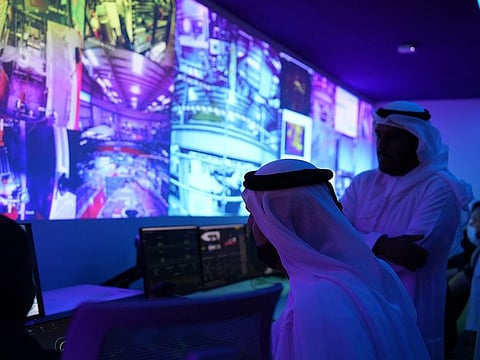Maritime industry jobs will get to benefit from remote operation centres
Remote and autonomous technology can help route more tech-enabled jobs

In a recent report by Dell, and authored by the Institute for the Future (IFTF), 85 per cent of jobs that will exist in 2030 have not been invented yet. This change are largely driven by the effect of digitalisation. While the impact is not as significant in all industries, it has revolutionised the maritime industry and its workforce.
One significant advantage of shifting operations from the ship to shore is that it removes barriers that previously prevented people from entering the industry. With inclusivity in mind, new doors can be opened through the design and construction of land-based operation centers, allowing anyone to forge a career path in vessel operations.
The working pattern introduced by shore-based operations will allow personnel to go home at the end of a shift, rather than being away from home for months. By improving the work-life balance, the maritime sector should become more attractive and help retain highly skilled personnel.
Going remote and autonomous
The biggest transformation for the maritime industry has to be the introduction of remote and autonomous technology, which is rapidly changing the requirements of the workforce. New positions are emerging, requiring alternate skillsets to traditional roles. For example, satellite communication wizards sit alongside network specialists who support tech-savvy navigators and engineers, whilst highly experienced master mariners cast an expert eye over the whole proceedings to pass on their knowledge of complex maritime environments. A great example of this new working model coming together is the Remote Operation Centers (ROC) that we have set up in various locations.
In essence, the industry is encouraging employees to become experts in system operations and diagnostics by asking them to manage these smart systems. If the user has a thorough understanding of how a process or system should function, it will become immediately clear when anything is malfunctioning.
Tech-enabled personnel
Training people to work with these new technologies has become a priority, and it is the industry that is leading the way. For example, Fugro, has founded MASSPeople, an international training standard working group, focused on creating a global standard for USV operator training.
As autonomous car testing highlighted in the past, an operator can easily become complacent and begin to fully trust the system they are supervising, until it is too late. This highlights the importance of training to ensure operators are fully aware of their responsibility and how key they are to the system’s functionality.
It also poses a challenge from an operational point of view to ensure that operators are kept actively engaged to maintain focus. There are two significant takeaways from this: Humans are still crucial in the process even when it comes to the most advanced system, and by keeping humans engaged, we are able to efficiently operate and continuously improve the systems.
Despite the rise of digital technology, successful operations still depend on people behind the scenes. However, those key people have different skillsets and learning agility to effectively use the rapidly changing technology.




